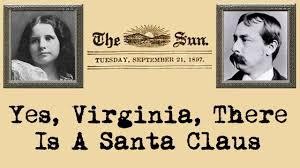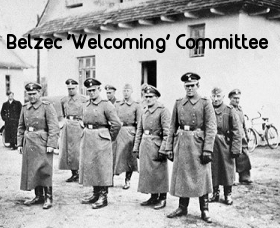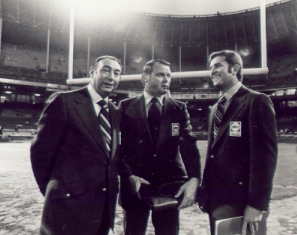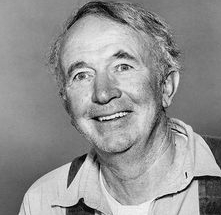On September 21…
“We used to root for the Indians against the cavalry, because we didn’t think it was fair in the history books that when the cavalry won it was a great victory, and when the Indians won it was a massacre.”
~Dick Gregory
1780 – American General Benedict Arnold met with British Major John Andre to discuss handing over West Point to the British, in return for the promise of a large sum of money and a high position in the British army.
However, the conspiracy was uncovered and Andre was captured and executed. Arnold, the former American patriot, fled to the enemy side and went on to lead British troops in Virginia and Connecticut. He later moved to England, though he never received all of what he’d been promised by the British.

1897 – The “Yes, Virginia, there is a Santa Claus” editorial was published in the New York Sun. Responding to a letter from eight-year-old Virginia O’Hanlon about the existence of Santa Claus, editor Francis Church took the opportunity to rise above the simple question and addressed the philosophical issues behind it, ending with this immortal paragraph.
“No Santa Claus! Thank God! He lives, and he lives forever. A thousand years from now, Virginia, nay, ten times ten thousand years from now, he will continue to make glad the heart of childhood.”

1904 – Nez Perce leader Chief Joseph died on the Colville reservation in northern Washington at the age of 64. He led his band of warriors during the most tumultuous period in their contemporary history when they were forcibly removed from their ancestral lands in Oregon to a reservation in Idaho Territory.
Chief Joseph was no warrior, and he opposed many of the subsequent actions of the Nez Perce war councils. Joseph’s younger brother, Olikut, was far more active in leading the Nez Perce into battle, and helped them successfully outsmart the U.S. Army on several occasions as the war ranged over more than 1,600 miles of Washington, Idaho, and Montana territory.
Chief Joseph was the only major leader to survive the war, and it fell to him to surrender the surviving Nez Perce forces to Colonel Nelson A. Miles at the Bear Paw battlefield in northern Montana in October 1877. “From where the sun now stands,” he promised, “I will fight no more forever.”

1937 – J.R.R. Tollkien’s The Hobbit was published for the first time, with a print run of 1,500 copies.

1938 – Without warning, a powerful Category 3 hurricane slammed into Long Island and southern New England, causing 600 deaths and devastating coastal cities and towns. Also called the Long Island Express, the Great New England Hurricane of 1938 was the most destructive storm to strike the region in the 20th century.
The hurricane gained intensity as it passed into Rhode Island. Winds in excess of 120 mph caused a storm surge of 12 to 15 feet in Narragansett Bay, destroying coastal homes and entire fleets of boats at yacht clubs and marinas. The waters of the bay surged into Providence harbor around 5 p.m., rapidly submerging the downtown area of Rhode Island’s capital under more than 13 feet of water. Many people were swept away.
The hurricane then raced northward across Massachusetts, gaining speed again and causing great flooding. In Milton, south of Boston, the Blue Hill Observatory recorded one of the highest wind gusts in history, an astounding 186 mph. Boston was hit hard, and “Old Ironsides” – the historic U.S. S. Constitution – was torn from its moorings in Boston Navy Yard and suffered slight damage. Hundreds of other ships were not so lucky.
The hurricane lost intensity as it passed over northern New England, but by the time the storm reached Canada around 11 p.m. it was still powerful enough to cause widespread damage. The Great New England Hurricane finally dissipated over Canada that night.

1942 – On Yom Kippur (Day of Atonement), over 1,000 Jews from the small city of Pidhaitsi were sent to the Belzec extermination camp by the Nazis. The deportment eliminated over thirty percent of the city’s Jewish population. One month later, an additional 1,500 were sent to Belzac.

1968 – Jeannie C. Riley became the first female performer to top the Billboard Country and Pop charts simultaneously, with Harper Valley P.T.A.

1970 – Monday Night Football debuted on ABC. The original trio in the booth were Howard Cosell, Keith Jackson and “Dandy Don” Meredith.
ABC Sports producer Roone had tried to lure Curt Gowdy and then Vin Scully to ABC for the play-by-play role, but settled for Jackson after they proved unable to break their respective existing contracts with NBC and the Los Angeles Dodgers. Frank Gifford would replace Jackson in 1991.
By the way, the Cleveland Browns defeated the New York Jets, 31-21.
1972 – Philippine President Ferdinand Marcos signed Proclamation № 1081, placing the entire country under martial law and marking the beginning of his authoritarian rule.

1974 – Actor Walter Brennan died from emphysema at the age of 80. He won the Academy Award for Best Supporting Actor three times: Come And Get It, Kentucky, The Westerner, and was nominated for a fourth for Sergeant York. All of that aside, he perhaps is best remembered for his role on television’s The Real McCoys,

2001 – America: A Tribute To Heroes was broadcast live – uninterrupted and commercial-free – on the four major American television networks and virtually all of the cable networks in the aftermath of the September 11 attacks on New York City and Washington, DC.
Done in the style of a telethon, it featured a number of national and international entertainers performing to raise money for the victims and their families, particularly but not limited to New York City firefighters and New York City police officers.
The 90-minute event raised over $200 million in donations.

2008 – At Yankee Stadium, the New York Yankees defeated the Baltimore Orioles in the final game to be played in “The House That Ruth Built”.
Time for another shameless plug! … For those who want to play great oldies from the 50s, 60s and 70s, here’s the link to the Streamingoldies media player (remember to move that green volume line on the player all the way to the right once you click the link!
http://streamingoldies.com/player/
Compiled by Ray Lemire ©2016 RayLemire.com. All Rights Reserved.
